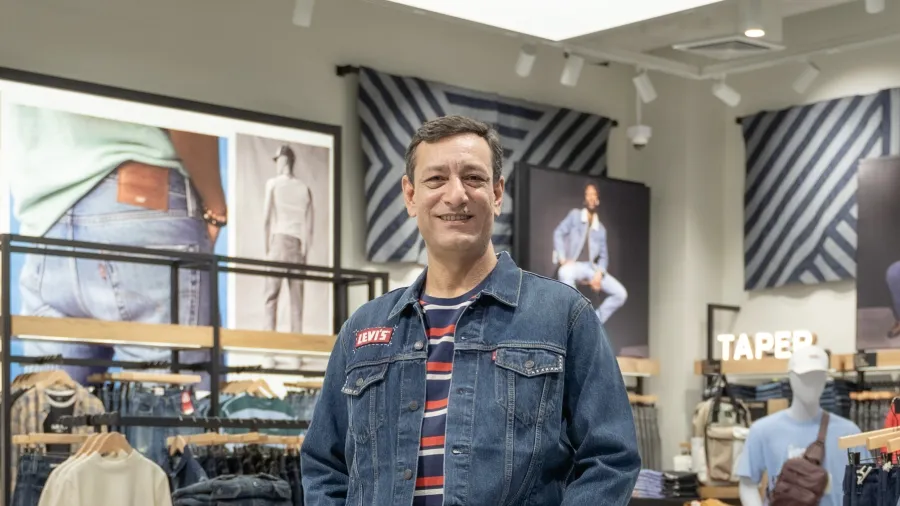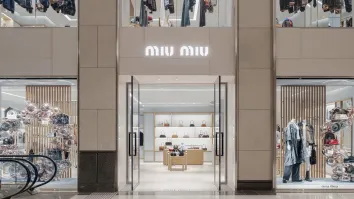
What’s next for Levi’s in Southeast Asia?
Explore how the brand is tapping into the diverse and growing consumer base in the region.
LEVI Strauss & Co. has been strategically expanding its footprint in Southeast Asia, building on its presence in key markets such as Japan, Bangladesh, and Thailand.
Sameer Koul, general manager of Levi Strauss & Co. in Southeast Asia, said the company has witnessed eight consecutive quarters of growth globally.
DTC strategy
“In Asia, as well as globally, for us, the momentum in our direct-to-consumer (DTC) global business continues,” he told Retail Asia. “We have delivered eight consecutive quarters of growth, fuelled by our shift to operating as a DTC-first business.”
Koul said the strategic approach aims to establish direct connections with consumers, offering elevated shopping experiences and a wide assortment of products.
The company plans to further expand its DTC footprint with additional store openings in the second half of the year.
Koul underscored the brand’s effort to diversify its product portfolio with continued growth in the women’s apparel segment.
“We’re seeing continued growth in our women’s apparel segment, especially denim skirts, denim dresses, and jumpsuits, [which] increased double digits in quarter one for us,” he said.
Tailoring offerings
Levi’s is also actively tailoring its offerings to meet the evolving preferences and lifestyles of consumers in Southeast Asia. This includes launching products tailored for hot and humid climates such as the performance cool line.
“We recognise the significance of this demographic and the need to continue tailoring our offerings and experiences to meet their evolving needs,” the company general manager explained.
Additionally, the company cited the importance of location strategy, with recent store openings in popular retail hubs like Bangkok's Central World mall.
“We will further lean into our DTC first strategy, which will enable us to build deeper and more direct connections with our consumers and help us in delivering immersive retail experiences to our consumers right where they shop,” he said.
“And as I mentioned earlier, as part of our DTC-strategy, we have operations in Thailand and [are] 100% owned and operated, which is testament to the strength of this strategy and the blueprint that we have set for ourselves in the region,” he added.
Beyond denim dominance, Koul said Levi’s aims to become a comprehensive lifestyle apparel destination.
“Going forward, we want to further solidify our position, not only as a denim leader, but also as a head to toe lifestyle apparel brand that offers something for everyone,” he said.
The Levi’s GM said the brand sees significant market opportunities in categories such as skirts, dresses, and tops.
“In a nutshell, we will look to diversify our portfolio across categories, across geographies, across genders,” he said. “With these strategies in place, I think we are well positioned to continue our growth trajectory in the region and capture the immense opportunity that this region presents."
Seamless retail experiences
Moreover, Koul shared Levi’s omnichannel approach, recognising the growing trend of customers initiating their shopping experience online before completing purchases in-store.
“We find these days that more often than not, our customers often start their retail journey online by searching for products before the conversion actually happens offline at the stores,” he said.
“That is why we have made it a point to become a truly omnichannel retailer and deliver a seamless experience to our consumers,” Koul added.
He said initiatives like the Levi's red tab membership programme aim to boost customer loyalty and engagement.
Advancing sustainability
“Delivering profits through principles has been, is, and will continue to be part of our heritage,” said Koul.
“We take this responsibility seriously in leading positive change in the apparel industry, and moving towards more sustainable and more circular products and practices,” he added.
Their revamped tailor shops, like those at Centralworld in Thailand, offer customers a space to repair Levi's cotton garments, promoting self-expression and sustainability. Initiatives such as the tailor shops also promote circularity and extend the lifespan of products.
The brand’s sustainability strategy focuses on three key areas, namely climate, consumption, and community.
It also emphasised its dedication to delivering exceptional retail experiences, utilising digital tools to monitor traffic, sales performance, and customer satisfaction metrics. These measures ensure timely interventions and contribute to overall store success.
“We as a company are committed to deliver best in class retail experience to our consumers, and to do so, we have employed digital tools that allow us to react quickly to potential issues, offer timely and accurate reporting and contribute to customer satisfaction and a better store experience for everyone,” Koul concluded.



















 Advertise
Advertise







